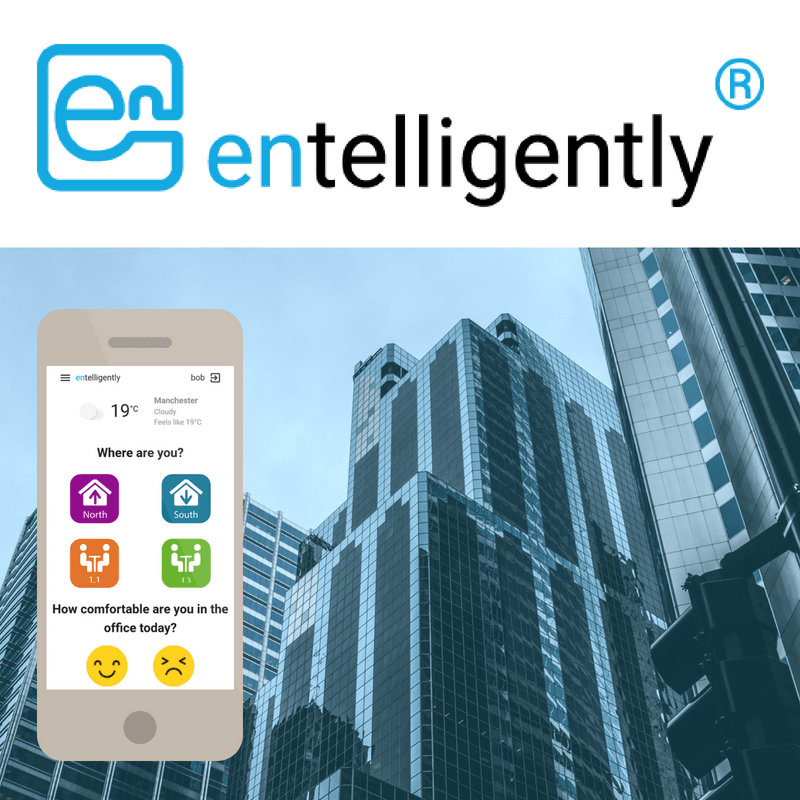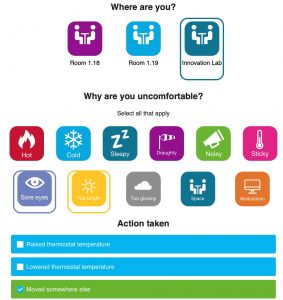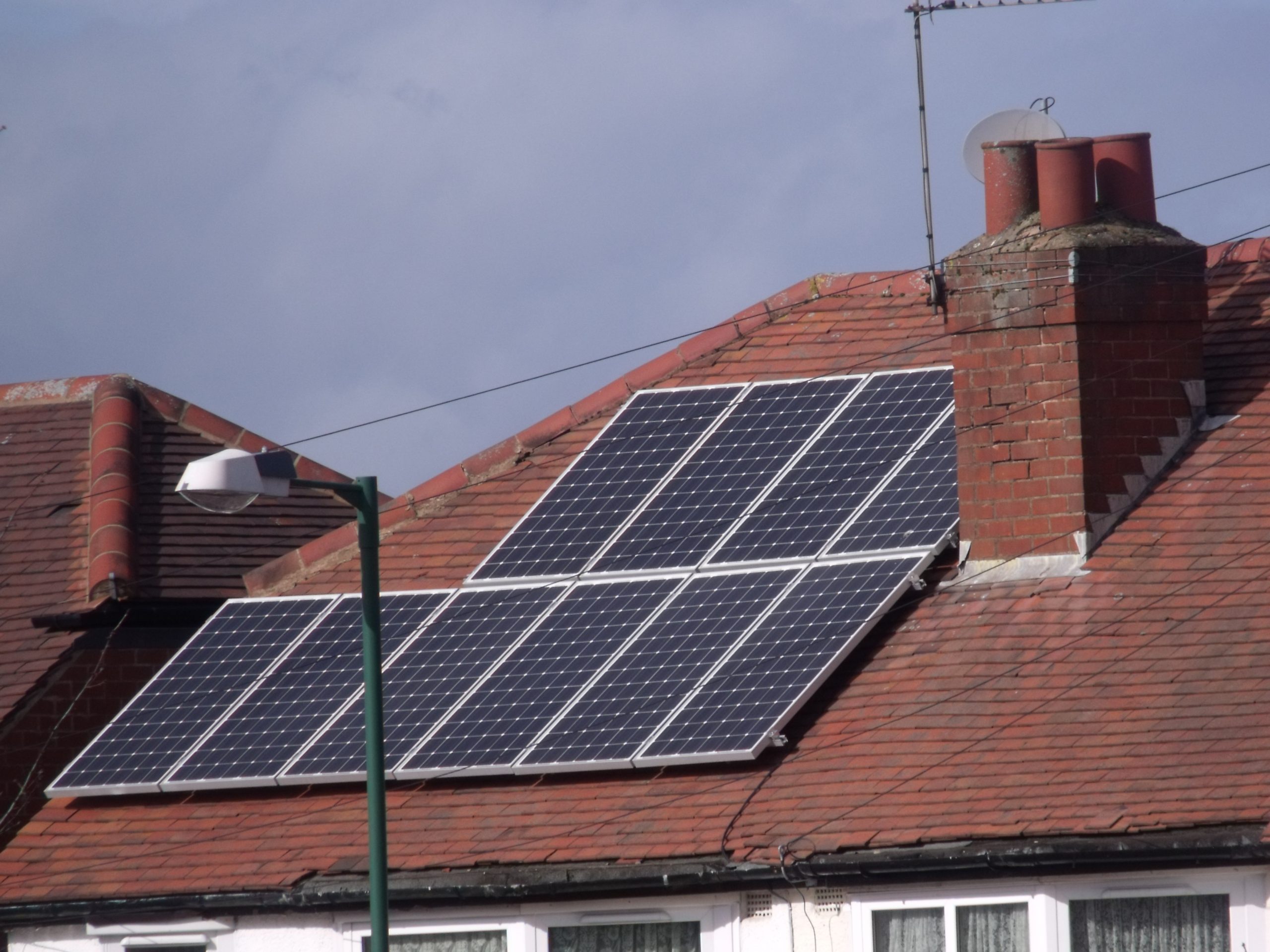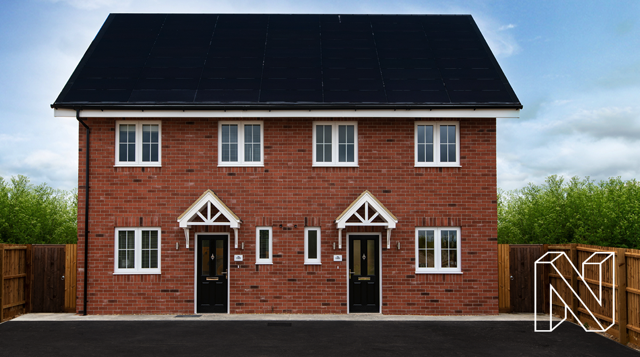Smart Buildings: Improving Wellbeing in the Workplace

The building performance gap has been a conundrum for architects for many years. This, joined with the increase in regulation for sustainable buildings, has led to the need for better building management systems. Housing Industry Leaders investigates how new technology is helping bridge this gap.
New technology created by KnowNow aims to tackle both issues. Collecting data from three different sources, the technology named Entelligently aims to improve several things in building management systems.

Chris Cooper, Founder, KnowNow
These three sources include:
- Internal data from the building management system or individual sensors.
- External data from the weather channel and other data providers.
- Data from building occupants via their smartphones.
The project was born out of an Innovate UK competition named Energy Game Changer. Chris Cooper, Founder of KnowNow told Housing Industry Leaders how the idea first came about. He explained: “People that were at an event complaining that it was a great building, but different people on different floors and areas were never happy because there was a mix of people doing a lot of different things.”
After looking into it, they found the building management system had a standard 21 degrees everywhere and they did not consider heat from the sun, the time of year etc.
“This got us thinking.”
He continued: “The premise that buildings cost more to run from an energy point of view. So how can you make the building smarter by getting feedback from people?”
“What would be the impact and the hypothesis was, if you can reduce the energy bill by 10% year on year, you would then have enough funding in the pot to justify collecting and processing the data and in turn doing something interesting with it.”
Technology helped dispel office myths
Testing a building in Manchester, the Entelligently technology brought the energy bill down by over 10%. Chris told Housing Industry Leaders: “The surprising thing there was how interacting with people you can actually improve their wellbeing which then had big consequences on teamwork and productivity.”
It also dispelled a lot of myths. The so-called best office – with the best views – was also the worst from a productivity perspective.
“You had these really expensive architects in the worst productive space, but actually if you moved them inwards to the building and freed up the window space for short term meetings and more collaborative meetings, the whole productivity of the organisation increased.
The surprising thing there was how interacting with people you can actually improve their wellbeing which then had big consequences on teamwork and productivity.
This is where the third way the data collected was useful. Using data from the building occupants via their smartphones boosted morale as people thought they were being listened to, reducing the energy bill and improved well-being and productivity.
Chris explained how it is essential to listen to building occupants and not just building management systems. He said: “Sometimes you cannot change the environmental settings in the office due to radiant heat from the sun or the design of the building management system. So, sometimes you need to interact with people, telling them it is going to be hot in the afternoon, why do not you move desks. Obviously for roles that allow moving into another room.”
Data collection driving the push for change
The app uses your data to help control the temperature of the buildings. Addressing concerns users may have with allowing data collection through their own devices, Entelligently has a microservice that captures your consent for data collection.
You can tell the consent capturing microservice when it can collect your data, the location it can be used, and even block it from certain floors of the building. “It gives choice and control which is really important. This immediately gives people confidence and trust to share their data. we have minimal pushback from users,” said Chris.


The app is simple to use and asks the above questions.
As we push towards 2050 net-zero targets, Entelligently was designed with these goals in mind. Reaching minimum energy efficiency standards and visualising this on the app allows people to take personal responsibility for their contributions.
Chris emphasised this: “As we move into a more climate focussed world, where you want to be bragging about the use of energy and efficiency to your building. It adds another must-have feature and people are starting to expect their buildings to be smart.”
Rounding up the interview, Chris told Housing Industry Leaders: “It is all about incentivising people, it is about making sure you feel part of the narrative and part of the story. People need motivation. Standards are important because it establishes a minimum of acceptable performances.”

